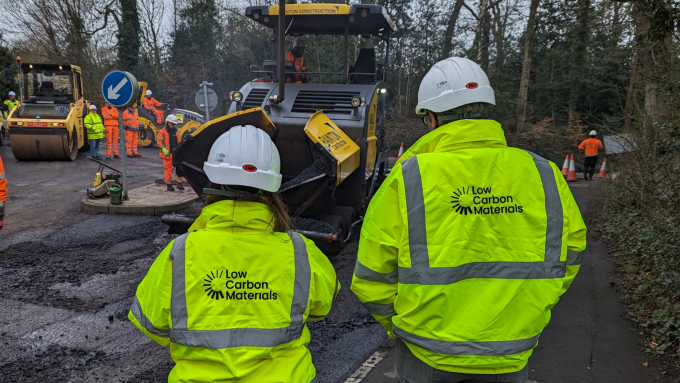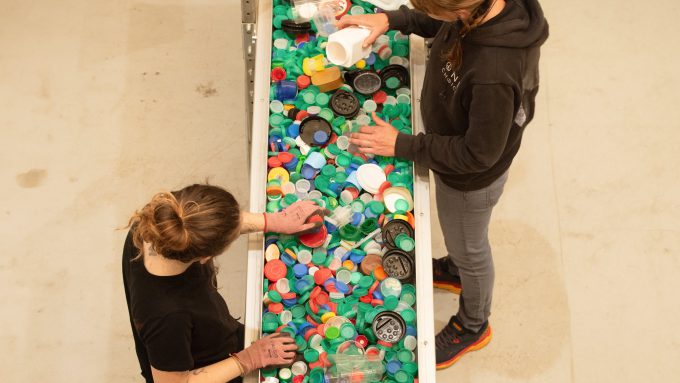
Best fit climate innovation – solutions for India, Mexico and Peru

The Morgenstadt Global Smart Cities Initiative (MGI) worked with three mid-sized cities in India, Mexico, and Peru to identify solutions to these challenges. The MGI and the cities co-designed prioritisation metrics, and used them to take up to 15 ideas to one implemented solution across buildings, mobility, and urban planning sectors in three innovation districts.
It was funded by the International Climate Initiative (IKI) of the Federal Ministry for Economics and Climate Action (BMKW) between 2018 and 2023. The three district pilot sites are situated in Elamakkara North and Puthukkalavattam, Kochi, India; Brisas, Saltillo, Mexico and Loretto, Piura, Peru.
MGI worked with each city to develop the criteria for selecting districts for implementing a net zero technology, from profiling to site visits. The City Lab methodology enabled close collaboration with regional stakeholders to develop a comprehensive sustainability profile for each city, informed by discussions around local barriers and issues, and by the resources and solutions available. It then helped them establish a roadmap with creative project ideas to make the city more sustainable and climate change resilient. Finally, a study visit was arranged to narrow down potential candidate districts to one selected part of the city. The overarching objective was to implement sustainable development in these areas through clean technologies.

Elamakkara North and Puthukkalavattam, Kochi | India:
In the districts of Elamakkara North and Puthukkalavattam, Kochi, the successful implementation project demonstrates that an integrated approach to a sustainable retrofit (solar energy, green building, and water treatment) could be replicated in similar places.
Rooftop solar energy raises the proportion of renewable energy, lowers CO2 emissions, and enables communities to generate their own electricity, reducing reliance on external sources of power. Photovoltaic solar panels were installed on the rooftops of 15 households and the local school, which became the first educational institution in the State of Kerala to run on renewable energy. The neighbourhood became more independent by generating electricity through rooftop solar power generation and reduced energy bills across the community as a result. Costs also fell as a result of a reduced need for cooling via the installation of green infrastructure that stored rainwater and reduced the urban heat island effect in the neighbourhoods.
Brisas, Saltillo | Mexico
In the district of Brisas, Saltillo, Mexico, the implementation project demonstrates a small-scale intervention using Nature-Based Solutions (NBS) and Blue-Green Infrastructure (BGI). The project successfully reduced energy demand in buildings using NBS. Examples include cooling mechanisms such as shading surfaces, deflecting the radiation from the sun, and releasing moisture into the atmosphere by evaporative cooling. It used detention, infiltration, and evaporation of urban stormwater to reduce flood risks and enhance groundwater penetration. The project was designed to have zero overall emissions in embodied carbon and operational energy by the implementation of a nature-based solution.
Loretto, Piura | Peru
In the district of Loretto, Piura, Peru, the implementation project demonstrates the importance of strategic urban planning using GIS, digital tools, and analysis. The overall objectives were to establish the municipality’s centralised GIS data system, and create fresh green spaces from a small illegal garbage site. Around 25% of the district’s daily 200 tonnes of solid garbage were not historically collected. 14 unregistered disposal sites were found by the municipality in 2021. To overcome these challenges, a public engagement programme was created that focused on engaging and educating citizens. A toolkit is currently being developed so that the project can be replicated and expanded to additional, smaller illegal dump sites throughout the city.
Learning between cities
During the selection process and the implementation phase in the three districts of Kochi, Salitto, and Piura, MGI facilitated exchanges between the cities. They co-designed prioritisation metrics as part of the CityLab methodology, from impact and replicability to political and community support. An expertise and capacity building programme resulted in eight webinars that covered everything from energy accounting to baselining indicators. The cities were invited to give best practice presentations to cities across Europe, selected by the MGI. The cities all have ongoing, direct exchanges with each other to share lessons learnt throughout the initiative.
Using the learnings from working with these three districts, MGI is in the process of releasing a series of tools that other local leaders can use to inform their decision-making in this area. A climate change and risk assessment methodology was published in March 2023, and a handbook will be released later this year outlining how to use GIS tools to select districts for implementation based on social, economic and environmental impact metrics.
Further reading
Morgenstadt Global Smart Cities Initiative – City Lab Piura pilot project
Morgenstadt Global Cities Initiative – Saltillo is preparing for the implementation phase
Morgenstadt Global Cities Initiative – Expert interview: the energy sector in Saltillo and Piura
Morgenstadt Global Cities Initiative – Kochi: pilot project close to completion
This case study was produced for Connected Places Catapult by Centre for Net Zero.





